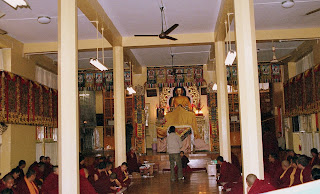Dr Copernicus
doctor copernicus proposed the heliocentric theory and forever changed the way we perceived earth as being the centre of the solar system. he was however very fearful of the retribution that could occur from the roman church if he made his theory public during his lifetime. his work in astronomy was also a hobby which never took centre stage in his life as a canon and as a diplomat for his maternal uncle the bishop of warmia.
the biography is dramatic in recreating the relationships that copernicus had with his brother and his fear how his studies in astronomy would be perceived. copernicus never married but in the story is shown to have lost out the position of bishop- once occupied by his maternal uncle- as he was seen as living in sin with a woman, anna schillings. anna schillings was a cousin of copernicus, had lost her husband to the political upheavals of the time, lived with him till his death, taking care of his household.
the other important narrative in the biography is that of rheticus who is a student sent up to study astronomy with copernicus. rheticus reads up the heliocentric theory and is allowed to publish a small booklet about it- to test the reaction of the clergy and political masters.
the narrative brings to life the times in which copernicus lived, recreates the bleak climate of poland/ermland during those times. made me feel i was in the world of jrr tolkein with his hobbits. worth a read.
the next biography is that of kepler, who was a brilliant mathematician in the court of emperor rudolph 2. he was also an astrologer at the court. he published a theory on the paths of planetary movement. he was buffetted by the fickle winds of political patronage and his best contribution was when he was the court mathematician. he developed his theories on the basis of the observations of mars made by his predecessor in the court- tycho brahe. kepler also studied the stars by improving the lenses that were available at that time and the biography dwells upon the friendship with the jewish lens grinder wincklemann.
kepler is contracted to be a mathematics teacher at the university of graz in austria, and is shown to have been an absent minded professor, unable to hold the attention of his students. kepler married twice. the first marriage was to a twice widowed barbara muller who had a daughter, regina, from an earlier marriage and is shown as being unhappy in the relationship. he marries a second time on barbara's death after reviewing eleven prospective brides. this marriage - to susanna- is shown as a very happy one. he is troubled in his later years by his mother who is found to be practising witch-craft and she is somehow let off.
the narrative is full of the uncertainities which plagued kepler and kept him in a constant state of worry regarding his income as well as his own inability to be a sauve and sophisticated personality who could flatter his way to great positions. he comes across as a person so immersed and passionate about his work that the usual struggles of living are an unwanted interruption to his lofty study of the universe.
the newton letter contains very little about newton or the letter and is better left unread.




